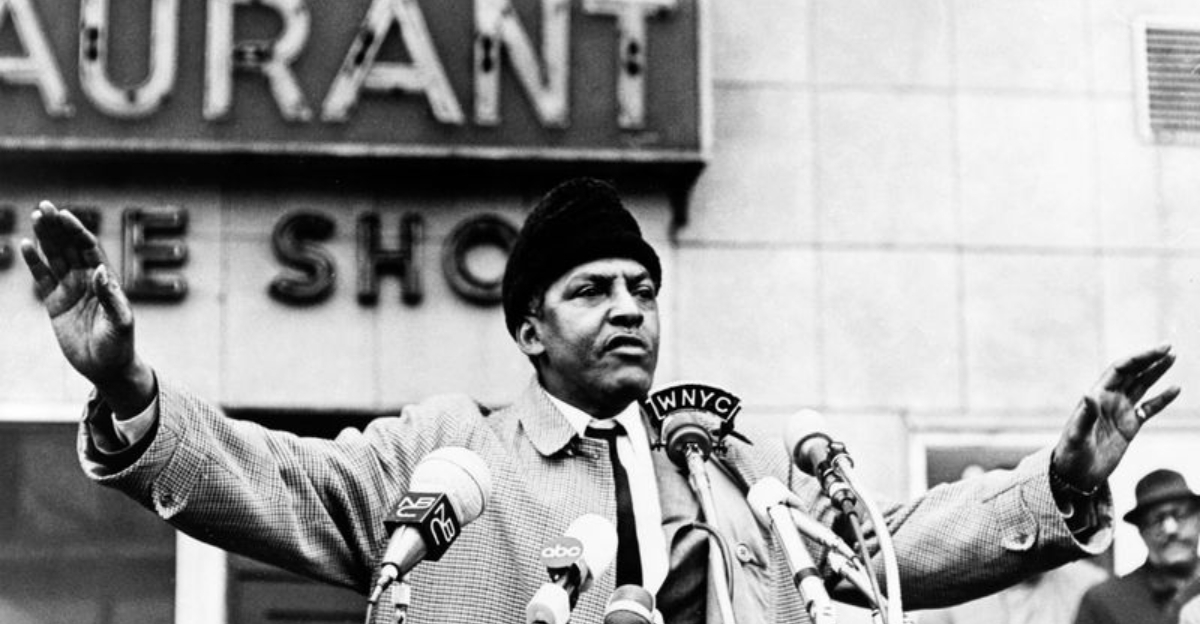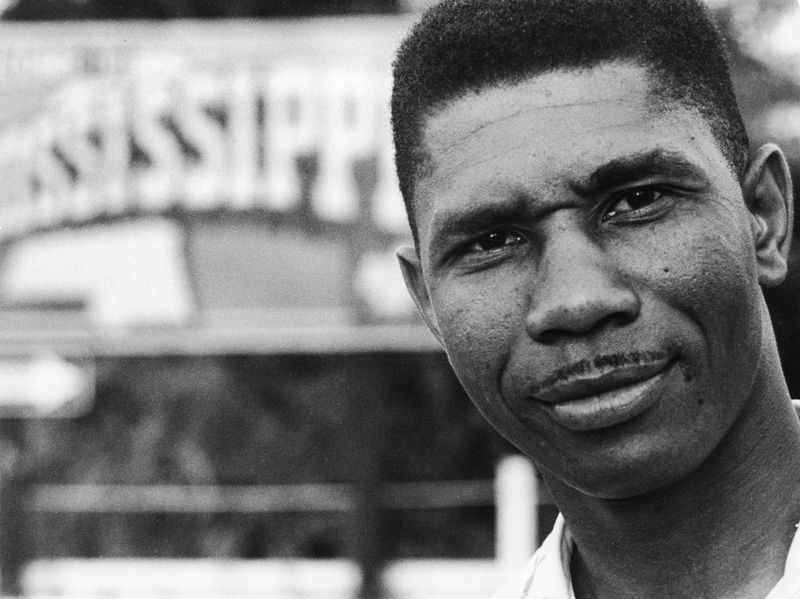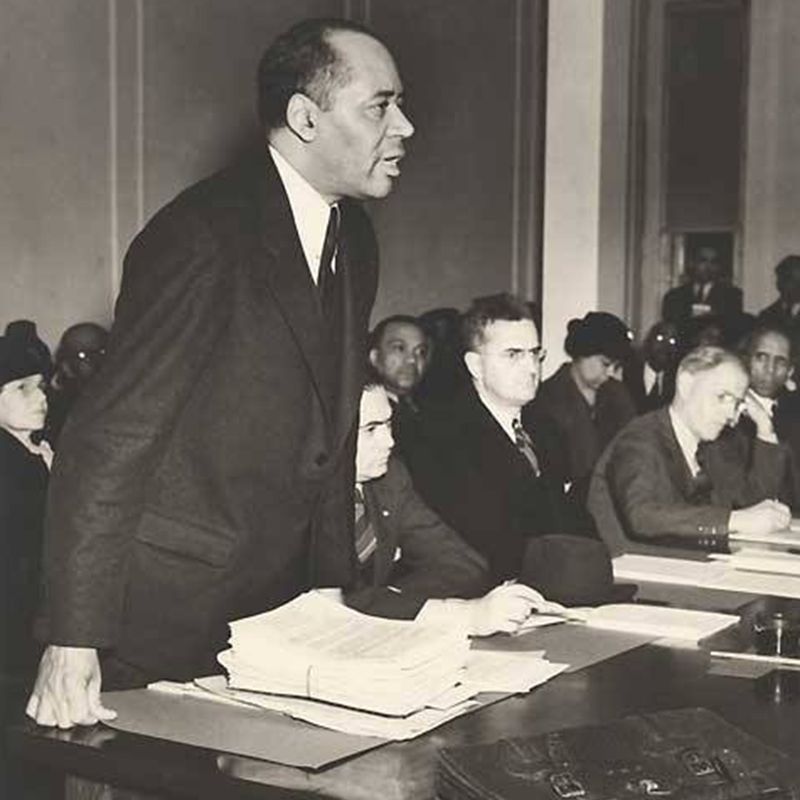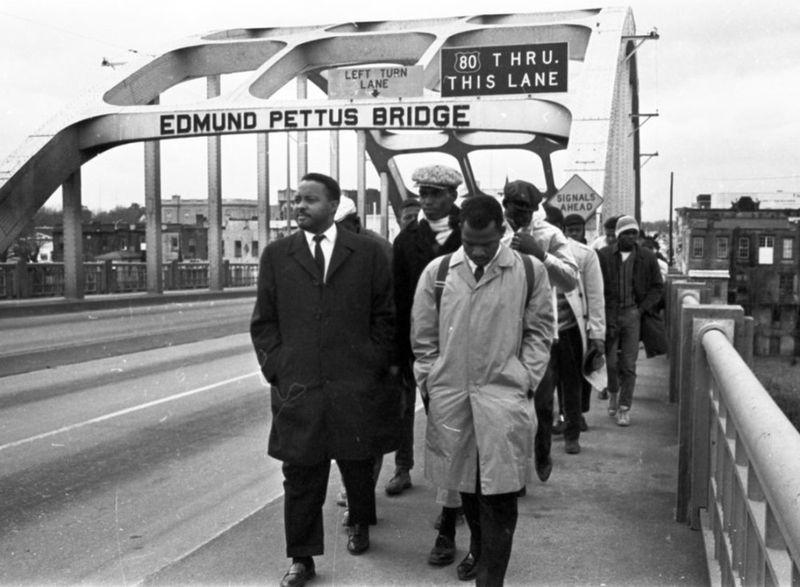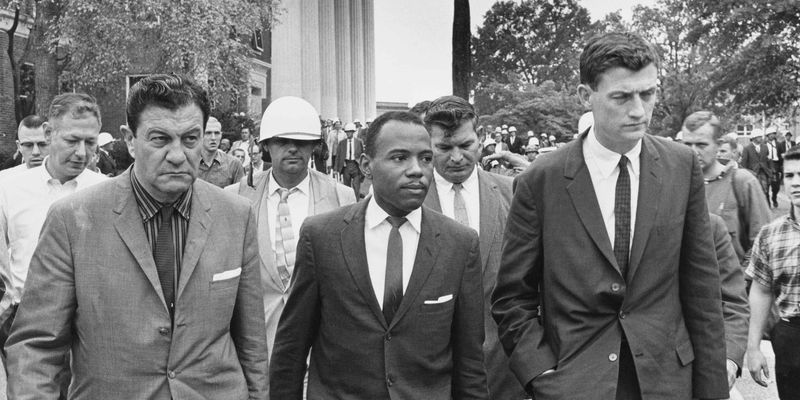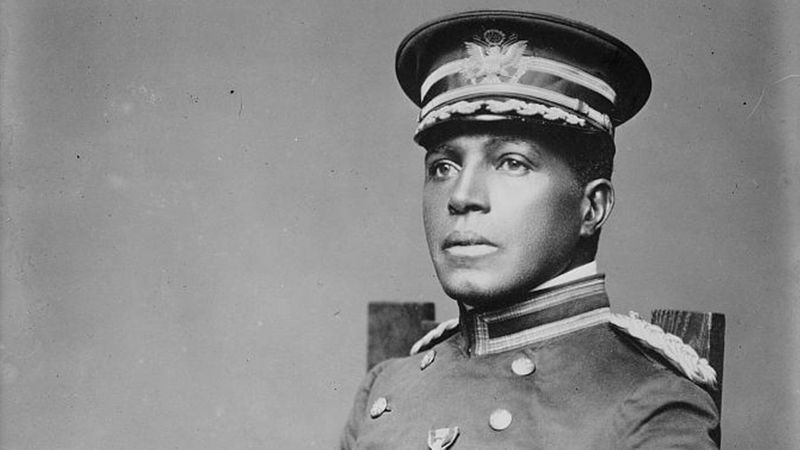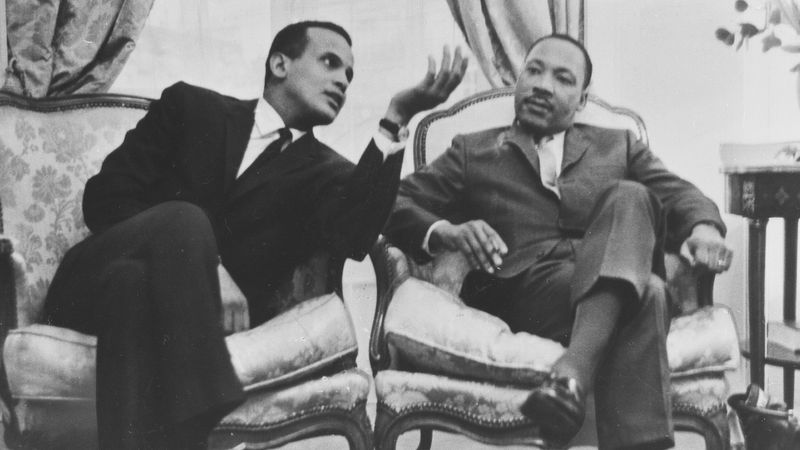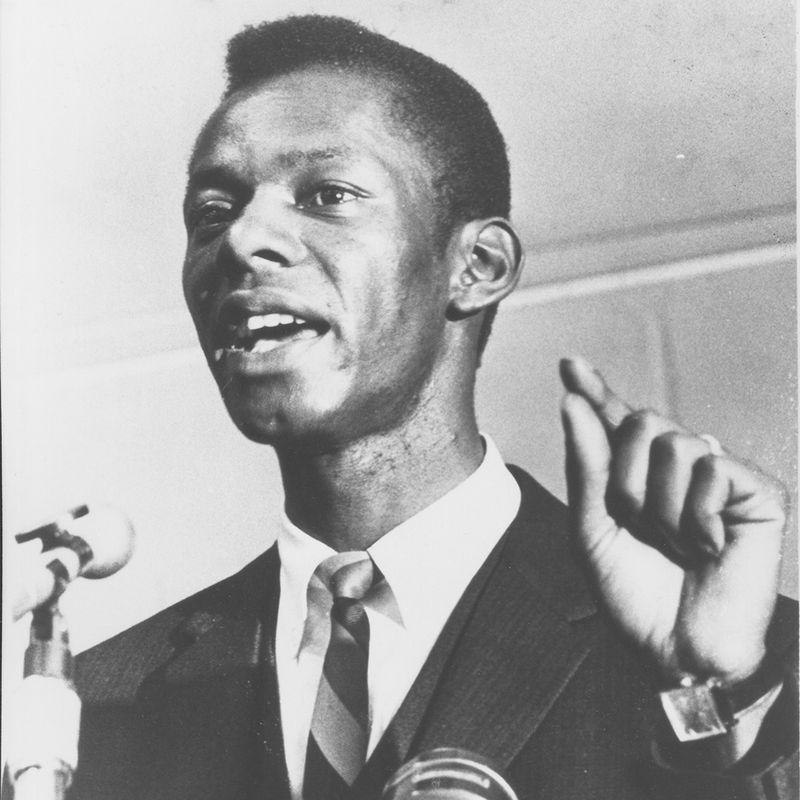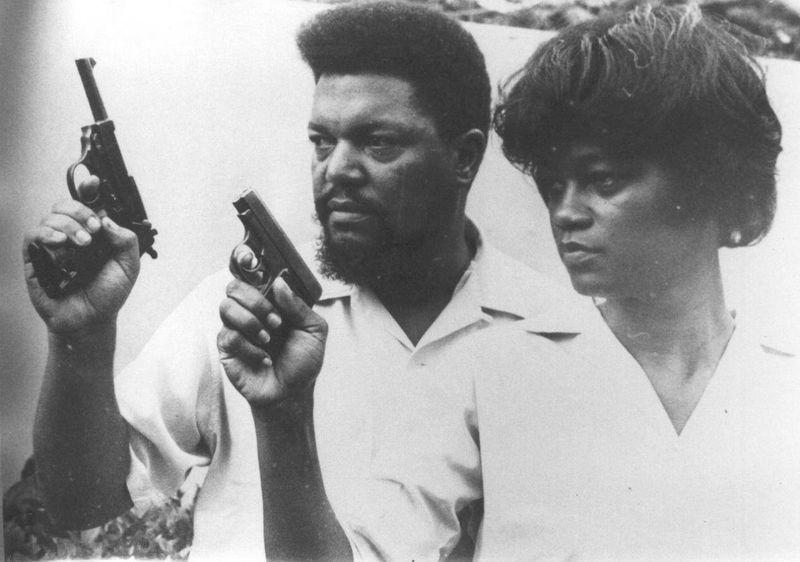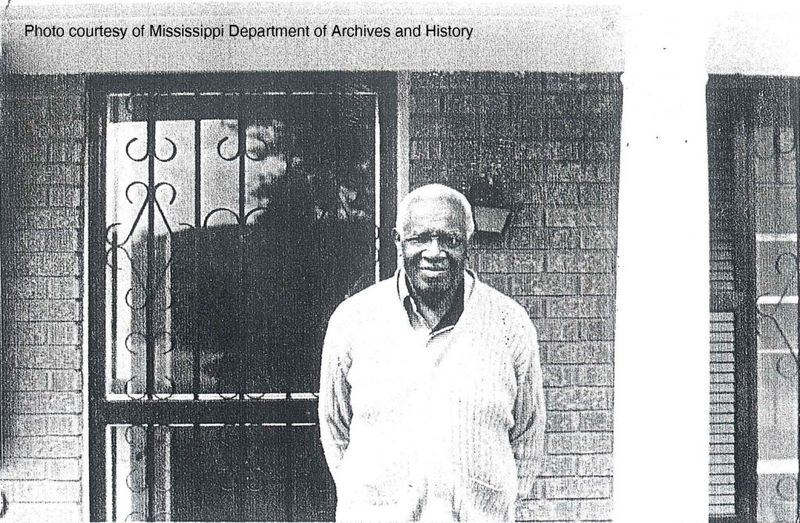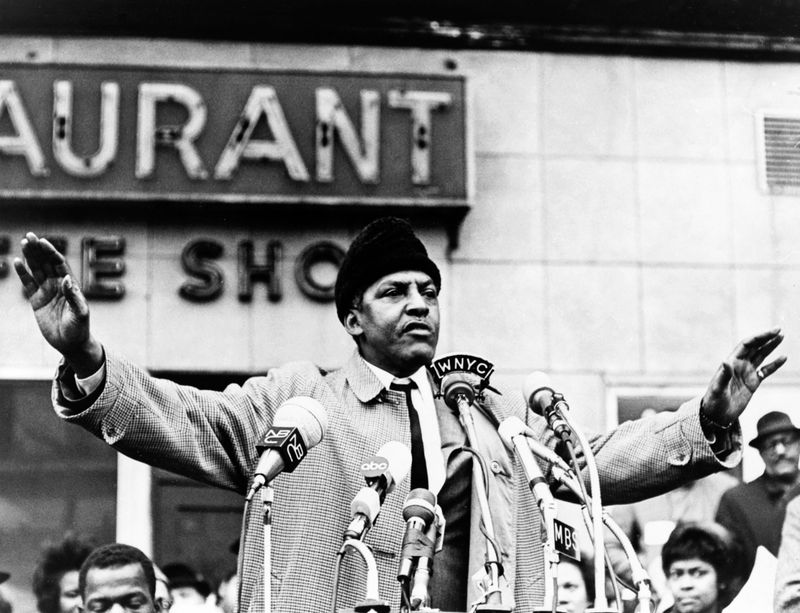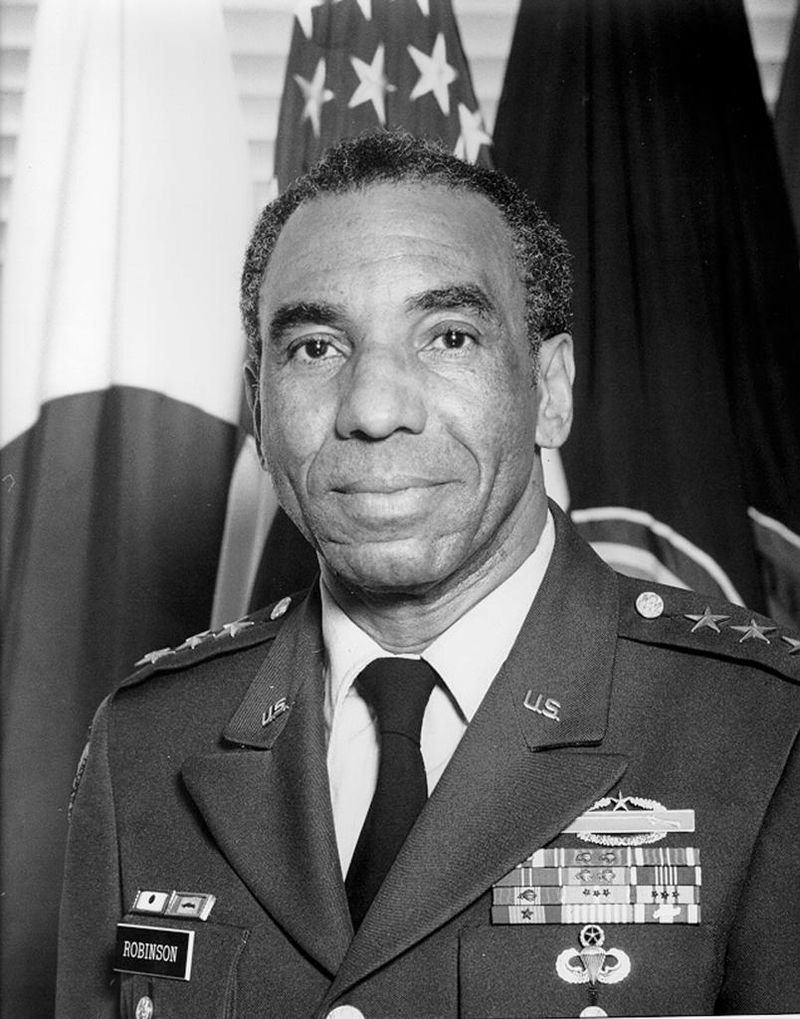America’s journey toward equality has been shaped by those who served both on the battlefield and on the frontlines of social change.
Veterans who fought for their country often returned home to find another war waiting – the struggle for civil rights and equal justice.
Their military experiences gave them unique perspectives and courage to challenge injustice, transforming American society in profound ways.
1. Medgar Evers: The Soldier Who Never Stopped Fighting
After storming the beaches of Normandy in World War II, Medgar Evers returned to Mississippi only to face an enemy just as dangerous – institutionalized racism. His military service awakened a fierce determination to secure voting rights for African Americans.
As NAACP Field Secretary, Evers organized boycotts, investigated lynchings, and led voter registration drives that terrified white supremacists. His home became command central for civil rights activities throughout Mississippi.
On June 12, 1963, a sniper’s bullet cut short his crusade. Evers was assassinated in his driveway, but his legacy inspired a generation of activists who continued his unfinished work.
2. Charles Hamilton Houston: The Legal General
Serving in segregated WWI units showed Houston firsthand how inequality was woven into American institutions. The Harvard-educated lawyer returned from France with a mission: to use the Constitution as a weapon against discrimination.
Known as “The Man Who Killed Jim Crow,” Houston meticulously crafted the legal strategy that would eventually topple segregation. His brilliant mind conceived the step-by-step approach that challenged discriminatory laws in education.
As dean of Howard University Law School, he trained an army of civil rights attorneys, including future Supreme Court Justice Thurgood Marshall. Houston’s battle plan ultimately led to the landmark Brown v. Board of Education decision.
3. Thurgood Marshall: From Military Justice to Supreme Justice
While not enlisted himself, Marshall fought tirelessly for Black servicemen facing discrimination and unjust court-martials during wartime. His briefcase became his weapon, challenging racial injustice case by case.
Marshall’s 1954 victory in Brown v. Board of Education forever changed American education. As lead counsel for the NAACP, he argued 32 cases before the Supreme Court, winning 29 of them – a remarkable record that reshaped American law.
In 1967, he shattered another barrier, becoming the first African American Supreme Court Justice. For 24 years on the bench, Marshall continued defending the rights of the marginalized, his military justice work informing his constitutional vision.
4. Hosea Williams: From Purple Heart to Protest Line
Badly wounded by German artillery in WWII, Hosea Williams survived a year in hospital only to face brutal racism upon returning home. Once, he was beaten severely for drinking from a whites-only water fountain – an experience that ignited his activism.
As Dr. King’s trusted lieutenant, Williams organized some of the most dangerous civil rights campaigns. His fearlessness earned him the nickname “Bull” among fellow activists who marveled at his willingness to face violence.
Williams led marchers across the Edmund Pettus Bridge on “Bloody Sunday” in 1965, facing state troopers who attacked peaceful protesters. His military discipline helped him organize effective protests throughout the South, making him an invaluable strategist in the movement.
5. James Meredith: The Air Force Veteran Who Integrated Ole Miss
Nine years of military discipline in the Air Force prepared James Meredith for the battle of his life – becoming the first Black student at the University of Mississippi in 1962. His military bearing helped him withstand the vicious hostility directed at him.
Meredith’s enrollment sparked riots requiring 30,000 federal troops to restore order. Through tear gas and flying bottles, he maintained the same steely resolve he’d developed in uniform, refusing to abandon his mission.
After graduating, Meredith continued challenging racial barriers. His 1966 “March Against Fear” through Mississippi encouraged Black voter registration and became a pivotal moment in the movement, especially after he was shot but survived to complete the march.
6. Colonel Charles Young: Breaking Barriers in Uniform and Beyond
As just the third African American to graduate from West Point, Charles Young faced constant racism yet rose to become the highest-ranking Black officer of his era. His exemplary service in the Spanish-American War and Philippines demonstrated Black military excellence during the height of Jim Crow.
Young made history as the first African American superintendent of a national park, managing Sequoia National Park with distinction. When medical disqualification threatened to prevent his promotion during WWI, he rode horseback from Ohio to Washington D.C. to prove his fitness.
Through his military career, Young created pathways for future Black officers and showed America that African Americans could excel in leadership roles. His dignified persistence challenged racial stereotypes both in and out of uniform.
7. Harry Belafonte: From Navy Service to Civil Rights Champion
When Harry Belafonte joined the Navy during World War II, he encountered the same segregation abroad that plagued America. This contradiction sparked his lifelong commitment to justice that would extend far beyond his musical fame.
Behind Belafonte’s smooth calypso rhythms beat the heart of a dedicated activist. He used his celebrity status to fund crucial civil rights initiatives, personally financing Freedom Rides and posting bail for jailed protesters when few others would risk their reputations.
As Dr. King’s confidant, Belafonte opened his home for strategy sessions and leveraged his Hollywood connections to support the movement. His financial contributions often arrived at critical moments, sustaining campaigns that might otherwise have faltered from lack of resources.
8. Bill Lucy: From Military Service to Labor Leadership
Military service taught Bill Lucy about solidarity and standing up for your fellow soldiers. These lessons proved invaluable when he helped organize the historic 1968 Memphis sanitation workers’ strike, where workers famously carried signs declaring “I AM A MAN.”
Lucy walked alongside Dr. King during the sanitation strike that would be King’s final campaign. His military background gave him organizational skills that proved essential in coordinating thousands of workers demanding basic dignity and fair wages.
As co-founder of the Coalition of Black Trade Unionists, Lucy connected civil rights with economic justice for decades after his military service. His leadership demonstrated how veterans could apply their service experience to fight for equality in American workplaces.
9. Robert Williams: The Marine Who Advocated Armed Self-Defense
Marine Corps training taught Robert Williams discipline and self-defense – skills he later applied as NAACP president in Monroe, North Carolina. When Klan violence threatened Black citizens in the 1950s, Williams organized armed protection squads that guarded civil rights meetings.
Williams’ controversial stance on armed self-defense challenged nonviolent orthodoxy. “Meet violence with violence,” he declared after courts acquitted white men who had attacked Black women, creating national headlines and debate within the movement.
Forced into exile after false kidnapping charges, Williams broadcast “Radio Free Dixie” from Cuba, inspiring later Black Power advocates. His military training shaped his belief that African Americans had both the right and ability to defend themselves against racist violence.
10. Amzie Moore: The Quiet Veteran Who Revolutionized Mississippi
Amzie Moore’s Army service in WWII fighting fascism abroad made returning to Mississippi’s oppression unbearable. Working as a postal worker by day, Moore quietly built a civil rights infrastructure in the Delta, one of America’s most dangerous regions for activists.
Moore’s gas station became a safe haven for civil rights workers. When young volunteers arrived for 1964’s Freedom Summer, Moore provided crucial local knowledge that kept many alive in hostile territory.
His military logistics experience proved invaluable in organizing voter registration drives. Moore’s home served as command central for campaigns that eventually transformed Mississippi politics, demonstrating how veteran leadership could transfer from battlefield to ballot box in the fight for equality.
11. Bayard Rustin: The Pacifist Who Organized for Veterans’ Rights
Though a conscientious objector who served prison time rather than bear arms, Bayard Rustin fought tirelessly for the rights of Black veterans returning from war. His unique perspective bridged military and peace communities in the struggle for equality.
Rustin’s organizational genius culminated in the 1963 March on Washington, where Dr. King delivered his “I Have a Dream” speech. Behind the scenes, Rustin orchestrated every detail of this massive demonstration, drawing on skills honed through decades of activism.
As an openly gay man in an era of severe homophobia, Rustin faced discrimination from multiple directions. Yet he persisted in advocating for all marginalized groups, including veterans facing racial discrimination in housing, employment, and education after serving their country.
12. Roscoe Robinson Jr.: America’s First Black Four-Star General
From segregated ROTC to the Army’s highest ranks, General Roscoe Robinson Jr. shattered military color barriers throughout his 34-year career. His combat leadership in Korea and Vietnam earned respect that transcended racial prejudice.
Robinson’s 1982 promotion to four-star general marked a historic milestone for African Americans in military leadership. Through each rank advancement, he mentored younger Black officers, creating pathways for future generations of military leaders.
Beyond the battlefield, Robinson served as a U.S. representative to NATO, bringing his commitment to equality to international diplomacy. His distinguished career demonstrated that excellence could overcome prejudice, inspiring both military and civilian leaders to challenge discriminatory systems from within.
